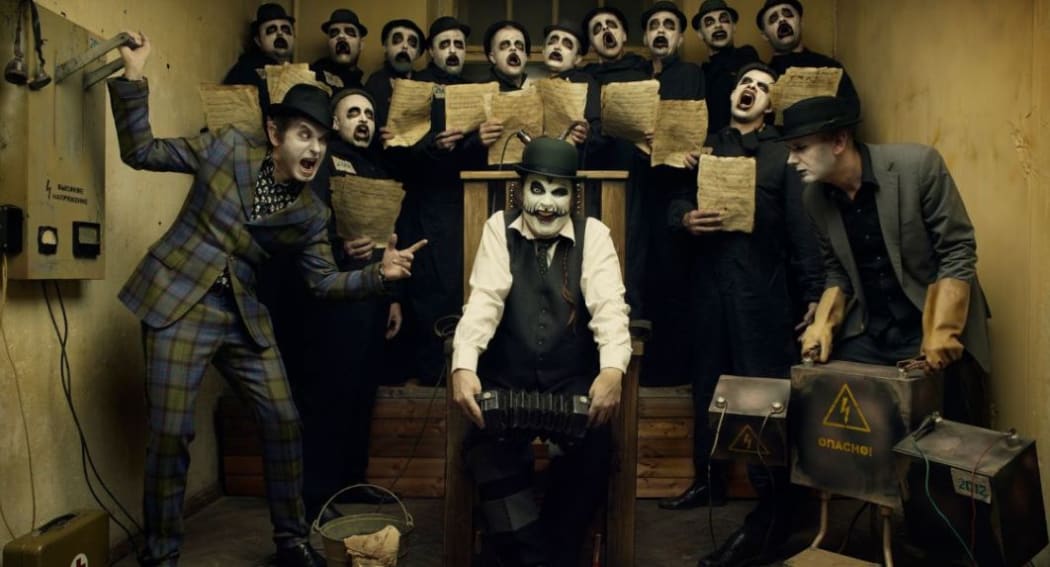As part of a project on reviewing and arts criticism, The Wireless is featuring reviews of the shows of the New Zealand Festival. Uther Dean checks out the Tiger Lilies and Mark Holthusen's Rime of the Ancient Mariner.
This 90 minute musical re-telling of Samuel Taylor Coleridge’s poem of the same name bills itself as “half-gig, half-movie”. Holthusen's giant, immaculate AV work, a colourful, sumptuous mix of animation and live action, is projected onto two screens. One is behind the performing Tiger Lillies, one a transparent scrim in front of them – the effect being that they are “in” the picture.

The Tiger Lillies' Rime of the Ancient Mariner Photo: Andrey Kezzyn / NZ Festival
As astonishing a technical achievement as Holthusen’s projections are, as well rendered and visually pleasing at they are, as charming and as smart as they seem, as an audience member, you very quickly get used to them. The source poem doesn’t give much, so Holthusen struggles to find action to illustrate, resulting in a series of what feels like restless frames. There is a thrust at times to the Tiger Lillies’ tracks that that lanquid narrative of both the poem and, by way of that, the AV, simply can’t match.
The technology doesn't evolve over the show. There is no “You Ain't Seen Nothing Yet” moment where a new level of interaction between the Lillies and the screens emerges. It quickly becomes just another light show, another thing to put your eyes on while the songs pass.
They need to be the live spark, the hot live act, the “Anything Can Happen”, the half-gig at the heart of this show, but they may as well be as pre-recorded as the AV.
This makes the show feel long. Very long. Every single person I have spoken to about Rime, even the people who proclaimed it their favourite entertainment in years, have talked about how long it feels. Ninety minutes is nothing. The mish-mash of tensions: the pace of the narrative, the thrust of the music and the innate dawdle of the adapted narrative all clash against each other, never quite sitting in the same world.
But what of the music itself? If you've heard of the Tiger Lillies you know what you think of them and their scratchy, raw, hand-wrought musical stylings. In many ways, Rime operates best as simply a Tiger Lillies gig. If you like their music, and I do, the show should pass easily and wonderfully. They are on top form with a set of songs as solid as any that they have produced. This is the half-gig of the show. This is the half that works. But it is not the whole.
The music suffers when forced into a narrative frame. As little changes in the story you begin to really dwell on how very similar some of the songs sound. It feels like the whole thing is winding in circles, not developing. Keeping you there. Denying you action or catharsis.
How isolated the Lillies are between the screens doesn’t help – they are distant and dim. I wondered whether they were phoning it in, but I think they were just far away. They need to be the live spark, the “Anything Can Happen”, the half-gig at the heart of this show, but they may as well be as pre-recorded as the AV.
That is how important the frame is, that is why it's important to really consider the conversation that people will have around the work. If I had not been told to expect a narrative, a story, a show and just been told I was going to see a gig with a kick-ass light show, I would have been happy. And that's what I would have got. But I was told there'd be a story. That it would be complete, a whole narrative work. It even acted like there was. A band I love played a barely (only!) 90 minute gig and somehow managed to make it feel very long.
This content is brought to you with funding assistance from New Zealand On Air.

